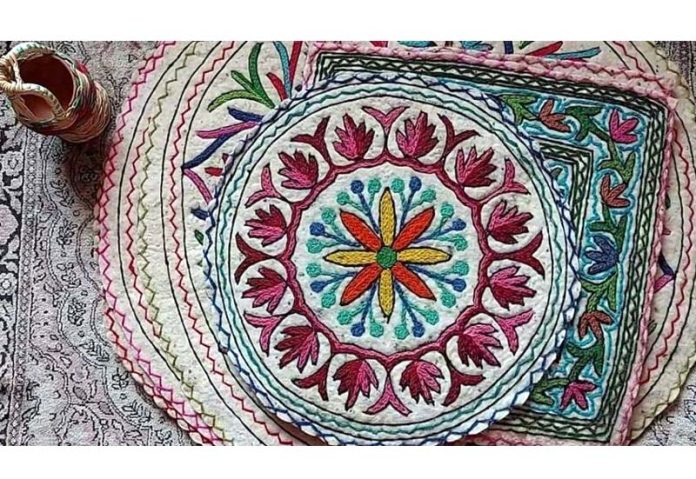Excelsior Correspondent
SRINAGAR, Dec 10: Farooq Ahmad, a 60-year-old master craftsman from Srinagar’s old city, is fighting a lone battle to preserve the fading art of traditional Namda-making.
Despite its decline, Ahmad remains among the few artisans in the Kashmir valley-and the only one in Srinagar-dedicated to creating exquisite handmade rugs that are still in demand for their innovative designs. However, he fears for the future of this centuries-old craft, citing a lack of skilled craftsmen and competition from cheap modern carpets. “If this continues, Namda will disappear. Future generations will only read about it in books,” he said.
Namda, a type of rug made from felted wool, is known for its intricate designs and cultural significance. Yet, the tradition is under threat due to dwindling interest and economic challenges.
Ahmad has been associated with Namda-making for over 40 years, having learned the craft from his father during childhood. “I started with Ari work but later introduced patchwork and different designs to meet market demands,” he explained.
Farooq described the labour-intensive process of making a Namda, which involves several steps: carding the wool, creating borders, layering, sprinkling a soap solution, rolling, drying, and finally adding decorative Ari work. “First, the wool is carded to remove impurities and make it finer,” Farooq said.
Next, he added, the border is designed and attached to the wool. “After that, the main layer is created, with the weaver choosing the colours and patterns. Soap solution is sprinkled to bind the wool fibers during felting, making the rug durable and long-lasting,” he said.
He emphasized that Namda rugs are particularly beneficial in winter due to their warmth and chemical-free nature.
Ahmad expressed dismay at the lack of interest among younger generations. “The younger generation isn’t interested in Namda-making. Most of those involved today are elderly,” he said.
As the art of Namda-making faces extinction, Farooq continues his efforts to keep this traditional craft alive, hoping to inspire the next generation to embrace and preserve this unique heritage.
Trending Now
E-Paper


